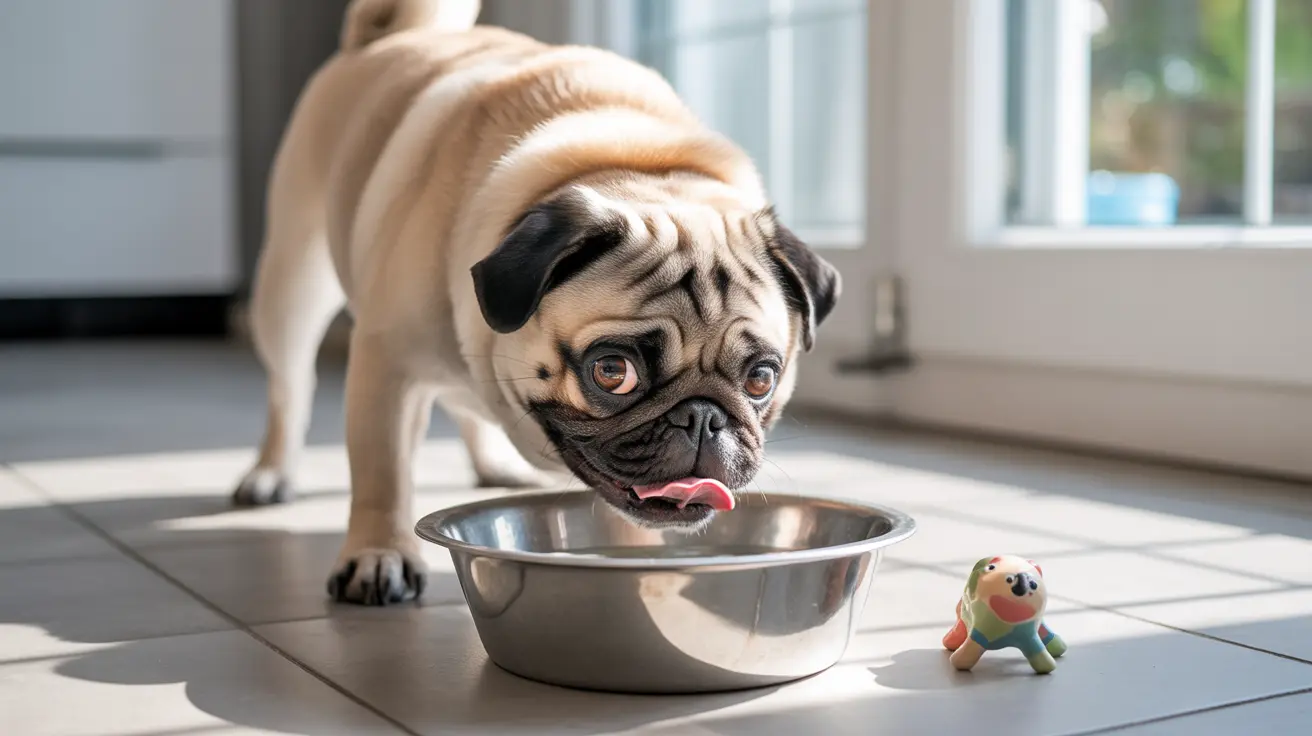When your beloved pet stops eating, it can be a deeply concerning situation. Understanding how long a dog can safely go without food is crucial knowledge for every pet owner. While dogs are remarkably resilient creatures, their ability to survive without sustenance has definite limits that every responsible pet parent should know.
In this comprehensive guide, we'll explore the scientific facts about canine fasting, examine the crucial timeframes for survival without food or water, and provide expert guidance on when to seek immediate veterinary care.
Understanding Dogs' Survival Without Food
A healthy adult dog can typically survive 3-5 days without food, provided they have access to clean drinking water. However, this doesn't mean it's safe to let your dog go this long without eating. After just 48 hours without food, dogs can begin experiencing significant health complications.
Several factors influence how long dogs can go without eating:
- Overall health and pre-existing conditions
- Age and size of the dog
- Activity level
- Environmental conditions
- Access to water
How Long Can Dogs Go Without Food Safely?
While dogs may physically survive several days without food, veterinarians recommend seeking medical attention if your dog hasn't eaten for more than 48 hours. Puppies, senior dogs, and those with health conditions may need attention even sooner, as they're at higher risk for complications.
The Critical Role of Water in Survival
When discussing how many days a dog can survive without food and water, it's crucial to understand that water deprivation is far more dangerous than food deprivation. Dogs can only survive approximately 72 hours without water, and signs of serious dehydration can appear within 24 hours.
Signs of Dehydration to Watch For:
- Sunken eyes
- Dry, sticky gums
- Loss of skin elasticity
- Lethargy
- Increased panting
- Rapid heartbeat
Why Dogs Stop Eating
Understanding why dogs go without eating can help address the root cause:
- Dental problems or oral pain
- Gastrointestinal issues
- Stress or anxiety
- Environmental changes
- Underlying medical conditions
- Picky eating habits
When to Seek Veterinary Care
Don't wait until your dog has gone days without eating. Contact your veterinarian if:
- Your dog hasn't eaten for 24-48 hours
- There are accompanying symptoms like vomiting or diarrhea
- Your dog shows signs of dehydration
- There are changes in behavior or energy levels
Frequently Asked Questions
How long can a dog survive without food or water, and what are the risks?
Dogs can survive 3-5 days without food if they have water, but only about 72 hours without water. The risks include organ failure, severe dehydration, and potential death. Never intentionally withhold food or water from your dog.
What are the signs of dehydration in dogs, and how can I treat it at home?
Look for dry gums, sunken eyes, lethargy, and loss of skin elasticity. While you can offer small amounts of water or ice chips, severe dehydration requires immediate veterinary care.
How often should I take my dog to the vet if they refuse food or water?
If your dog refuses food for more than 24-48 hours or water for more than 24 hours, seek veterinary care immediately. Puppies and senior dogs may need attention sooner.
How do environmental factors like heat and humidity affect a dog's survival time without food or water?
High temperatures and humidity significantly reduce survival time by increasing water needs and metabolism. Dogs in hot environments may become critically dehydrated within 24 hours.
What are the best ways to prevent dehydration and malnutrition in dogs, especially during periods of stress or illness?
Ensure constant access to fresh water, monitor food and water intake, consider wet food during illness, and work with your veterinarian to address underlying health issues or stress factors.
Remember, while understanding survival times is important, the goal should always be preventing your dog from going without food or water. If your pet shows any signs of illness or refuses to eat, don't wait - contact your veterinarian immediately.






